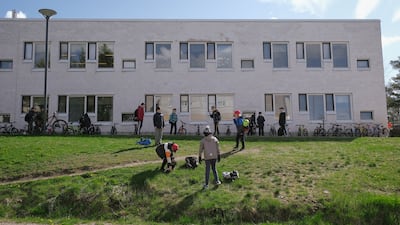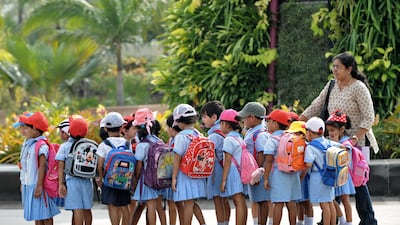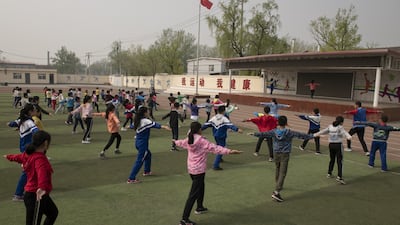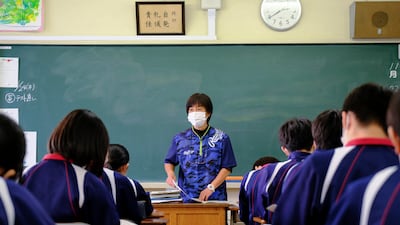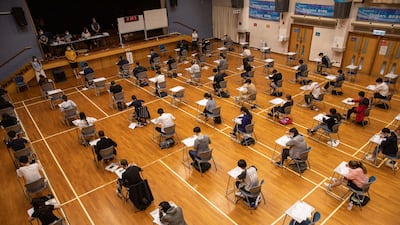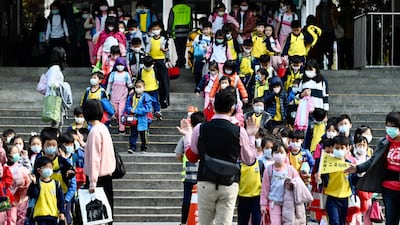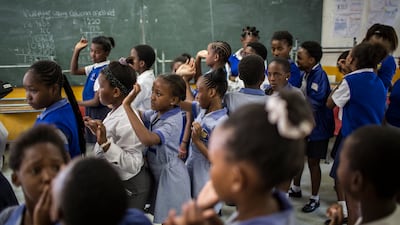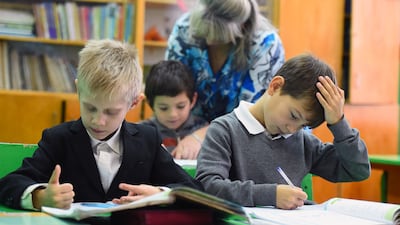South Korea, Finland, America and Russia have some of the world's toughest education systems, according to a new guide.
Singapore, China, Japan, Hong Kong, Taiwan, South Africa complete the top 10 list of countries with difficult education systems published by mastersdegree.net, a Kosovo-based education platform.
In South Korea, pupils often work 12 to 16-hour days with dinners served at school. In China, pupils are typically in the classroom from 8am until 5pm.
founder of Futures Abroad
Researchers studied each country’s education system, assessing curriculum rigour and educational standards, tertiary education, the nation's most challenging exam and most popular degree, stress levels among pupils, college acceptance rates and average IQ scores.
“We evaluated the world's top 10 most difficult education systems using a comprehensive methodology that considers seven key metrics,” said Alma Miftari, head of research and statistics at MastersDegree.net, told The National.
The 10 countries, which are not ranked in order, with the most difficult education systems were:
- South Korea
- Finland
- Singapore
- China
- Japan
- Hong Kong
- Taiwan
- South Africa
- United States
- Russia
Suneung, South Korea's eight-hour college entrance exam, is considered one of the hardest of its kind in the world.
Competition is so fierce that, on the day of the exam, the country's airspace is closed and the opening of the stock market postponed to help pupils focus.
Does being tough work?
Lee Hole, principal at Dubai British School Jumeira which will open doors later this year, worked in Cambodia for two and a half years before moving to the UAE.
He said education has become too outcome-driven in many of the nations in the list and this takes its toll on pupils' mental health.
“I think the demands you find with those schools and systems is that success is defined by the outcome and success isn't often defined by the person that's behind the outcome,” said Mr Hole.
“When the expectation and the demand is on the outcome, it becomes like a factory line. It's a very industrialised view of education.
“Education is there for you to get good outcomes, for you to then go on to university, and then the industry and into the workforce.
“From my experience working in South-east Asia, many of my Korean students would say they worked hard in mathematics, English and science so parents stayed off their back so they could focus on the things they were most passionate about.”

What about university?
Vandana Mahajan, founder of Futures Abroad, an education consultancy in the Emirates, said American universities are the most difficult to get into.
She said the countries listed with the toughest education systems had extremely high entrance parameters for schools and universities.
“The students right from high school have been told to prepare quite aggressively and intensively in order to be able to get into the schools and universities,” said Ms Mahajan.
“I was talking to some high school pupils in Japan who told me they worked so hard, they barely slept for four to five hours in a day.
“They grow up with a mindset that they have to work really hard to get into the best university, and then life is easy.
“When I was working with the University of Toronto in 2003, we had a lot of Chinese students and they did not sleep for more than two to three hours a day because they had to get into a local Chinese University and the competition was intense.
“All of these countries … have very tough parameters. Students have to work hard to get through the entrance exams, and then have a chance of getting in.”
